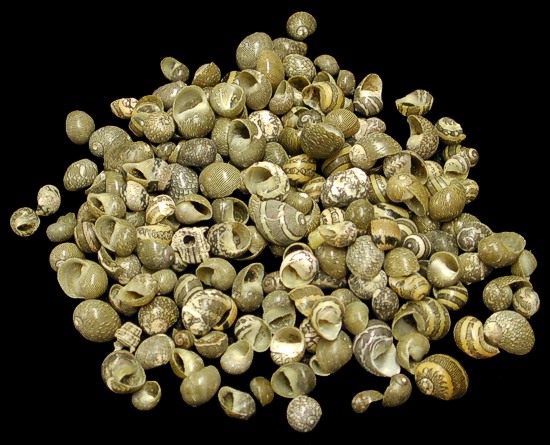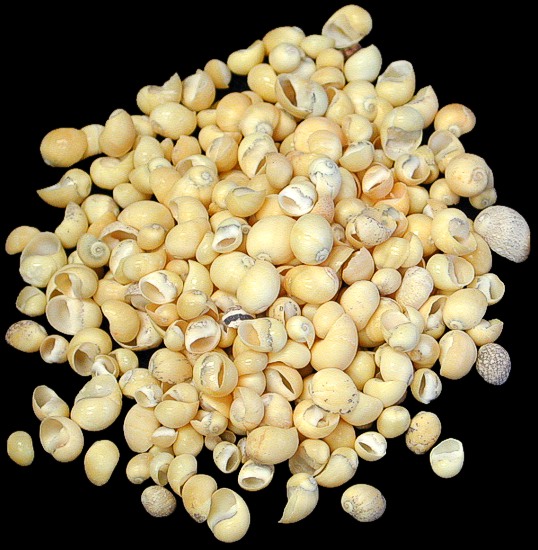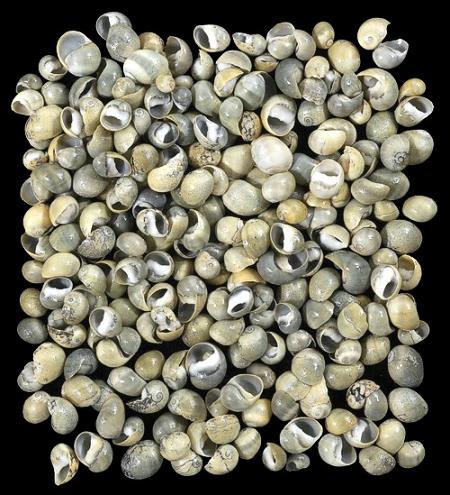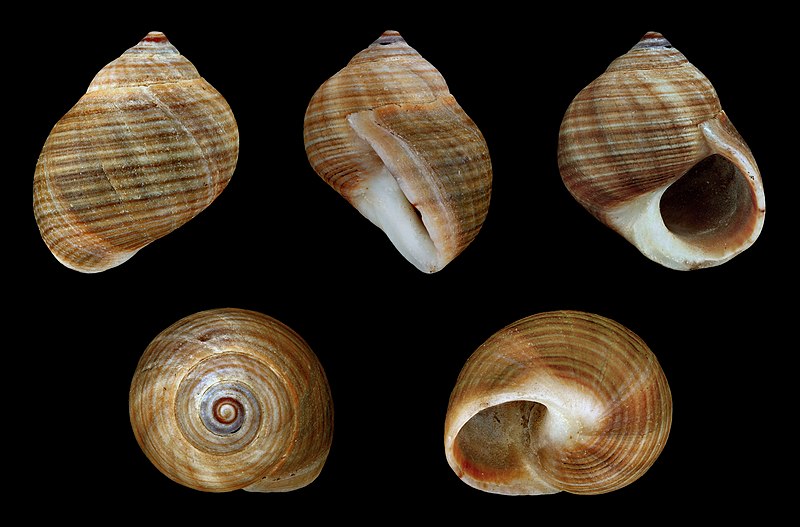As the site is updated, each listing includes the shipping cost. Some listings which I have not updated still give you calculated shipping costs based on weight and size of package. (In the sections I have updated) If you select several different listings, we will consolidate your order and charge you the actual cost of the entire package. The shipping over charge will be refunded to you, when your order is shipped.
LITTORINA SHELLS ARE INTERTIDAL GASTROPODS
Littorina Shells
Littorina are small marine snails found in warm and cool waters throughout the world.
The common periwinkle or winkle (Littorina littorea) is a species of small edible whelk or sea snail, a marine gastropod mollusc that has gills and an operculum, and is classified within the family Littorinidae, the periwinkles
The Littorina shell is broadly ovate, thick, and sharply pointed except when eroded. The shell contains six to seven whorls with some fine threads and wrinkles. The color varies from grayish to gray-brown, often with dark spiral bands. The base of the columella is white. The shell lacks an umbilicus. The white outer lip is sometimes checkered with brown patches. The inside of the shell is chocolate brown.
(details provided by Linnaeus C. (1758). Systema naturae per regna tria nature, secundum classes, ordines, genera, species, cum characteribus, differentiis, synonymis, locis. Tomus I. Editio decima, reformata. pp. [1-4], 1-824. Holmiae. (Salvius).)The common periwinkle/Littorina is mainly found on rocky shores in the higher and middle intertidal zone. They sometimes dwell in small tide pools & may also be found in muddy habitats such as estuaries that can reach depths of 180 feet.
The L. littorea is an omnivorous a grazing intertidal gastropod. They are primarily an algae grazer, but will feed on small invertebrates such as barnacle larvae. Littorinas use their radula to scrape algae from rocks and, in the salt marsh community, pick up algae from cord grass or from the biofilm that covers the surface of mud in estuaries or bays.
The radula is taenioglossate, consisting of seven teeth per row: one middle tooth, flanked on each side by one lateral and two marginal teeth. The radula is used to scrape algae and detritus.
Benson A. (2008). Littorina littorea. USGS Nonindigenous Aquatic Species Database, Gainesville, FL.
The L. littorea are oviparous, reproducing annually with internal fertilization of egg capsules that are then shed directly into the sea, leading to a planktotrophic larval development time of four to seven weeks. Females lay 10,000 to 100,000 eggs contained in a corneous capsule from which pelagic larvae escape and eventually settle to the bottom. This species can breed year round depending on the local climate. Benson suggests that it reaches maturity at about 1/3 inch and normally lives five to ten years. while Moore suggests that maturity is reached in 18 months.[ Some specimens have lived 20 years.
The biology of Littorina littorea. Part 1. Growth of the shell and tissues, spawning, length of life and mortality. Hillary B. Moore,Journal of the Marine Biological Association of the UK, Volume 21, Issue 2, 1937, pages 721-742
Scientific classification
Domain: Eukaryota
Kingdom: Animalia
Phylum: Mollusca
Class: Gastropoda
Subclass: Caenogastropoda
Order: Littorinimorpha
Family: Littorinidae
Genus: Littorina
Species: L. littorea
Binomial name: Littorina littorea(Linnaeus, 1758)

Black/Green Littorina Shell
E4-10
One-quarter pound of Black/Green Littorina Shells, measuring up to 1/4 inch........ $7.95

Yellow Littorina Shell
E7-10
One quarter pound of yellow Littorina shells, measuring up to 1/4 inch...... $7.95

Yellow Green Littorina Shells
E2-10
A quarter-pound of Yellow Green Littorina Shells, measuring up to 1/4 inch...... $7.95
xE2-10
One half pound of Yellow Green Littorina Shells, measuring 1/4 inch or less (most under 1/4 inch)...... $10.95
xxE2-10
One pound of Yellow Green Littorina Shells, measuring 1/4 inch or less (most under 1/4 inch)...... $18.95

BRWNLIT
One quarter pound of Brown Littorina Shells measuring mostly under 1/4 inch...... $7.95